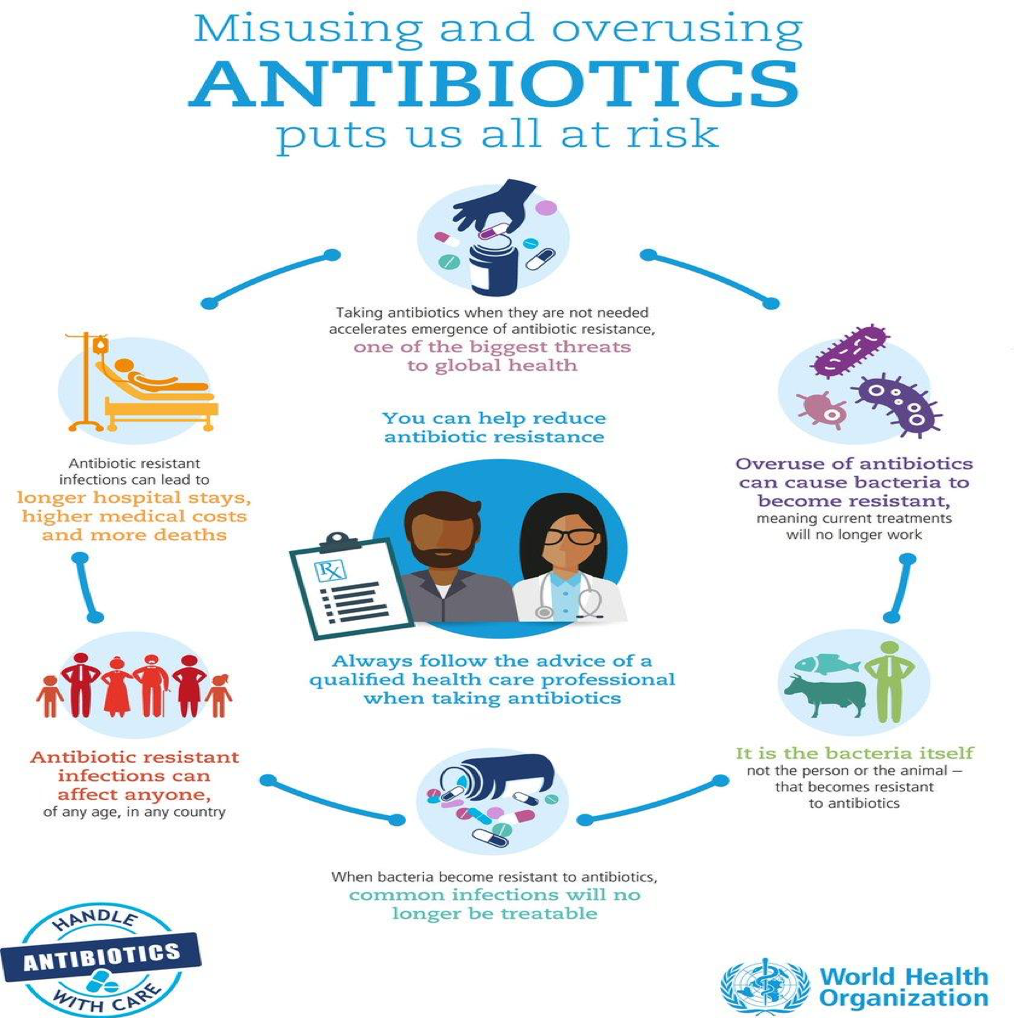High Levels of Antibiotic Resistance Worldwide
Antibiotic resistance is one of the biggest threats to food security, development, and global health today. Due to the ineffectiveness of antibiotics, it is becoming increasingly harder to treat infections. According to the World Health Organization, antibiotic resistance is impacting healthcare worldwide as there are now high levels of resistance prevailing in both high- and low-income countries. Antibiotic resistance occurs when the bacteria in our body changes in response to a medication, making the medicine less effective. The resistance process can be accelerated by the misuse and or overuse of certain antibiotics. Humans and animals can be infected and impacted by antibiotic-resistant bacteria, which can then lead to higher medical costs, prolonged hospital stays, and increased mortality. According to Pharmaceutical Microbiology, by the year 2050 antibiotic resistance will lead to more deaths than cancer and diabetes combined.
The World Health Organization’s Global Antimicrobial Surveillance System (GLASS) has shown that antibiotic resistance has impacted 22 countries and more than 500,000 people. With the connectivity of today's world, the transmission of pathogens is increasingly easier to pass to one another, especially when traveling. The most commonly reported antibiotic-resistant bacteria have been Escherichia coli, Klebsiella pneumoniae and Salmonella spp. Furthermore, Penicillin and ciprofloxacin are among some of the most commonly used antibiotics that are now susceptible to antibiotic resistance.
A few major infectious diseases like pneumonia, tuberculosis, gonorrhea, and salmonellosis are diseases being influenced by resistant bacteria. Some ways to reduce the transmission and spread of antibiotic resistance is through individual safety measures like tracking and reducing the amount of antibiotic prescriptions. In addition, preventing infections on an individual basis can consist of being vaccinated, safe food preparation, hand washing and using antibiotics as directed by your physician. The World Health Organization is working towards improving surveillance of antibiotic resistance with GLASS in order to develop strategies to prevent the spreading of both infectious diseases and antibiotic resistant bacteria. These organizations have begun the tracking process and it is starting to make a difference in several impacted countries that have adopted this methodology.
Sources
- http://www.who.int/mediacentre/news/releases/2018/antibiotic-resistance-found/en/
- http://www.who.int/mediacentre/factsheets/antibiotic-resistance/en/
- https://www.cdc.gov/drugresistance/pdf/4-2013-508.pdf
- http://www.who.int/campaigns/world-antibiotic-awareness-week/2017/infographics/en/
- http://www.pharmamicroresources.com/2017/12/efforts-to-combat-antibiotic-resistant.html

